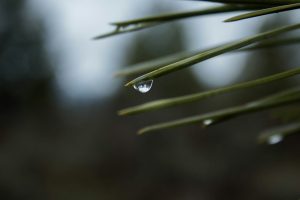
This is one of the most common yet often uncomfortable topics for Muslim women to ask about. Vaginal discharge is a natural part of a woman’s body, but many sisters find themselves unsure: does it break wudu? Is it considered impure (najis)? Does every form require ghusl (major purification)?
These are not trivial questions. They affect our daily acts of worship salah, Qur’an recitation, tawaf and our sense of spiritual confidence. So let’s unpack the matter clearly, gently, and according to the guidance of the scholars.
Understanding Vaginal Discharge in Islam
Vaginal discharge, known in Arabic as rutūbah al-farj, is a normal fluid that the body produces to maintain the health and cleanliness of the reproductive system. It varies in color and texture depending on a woman’s cycle sometimes clear and thin, sometimes thicker or whitish.
The ruling on its purity and its effect on wudu depends largely on where the discharge originates.
1. Discharge from Inside the Vagina (Internal Source)
This is the most common type the natural fluid that comes from the inner vaginal walls and cervix.
-
Scholarly opinion:
The majority of scholars (including the Hanafis, Malikis, and Hanbalis) hold that this discharge is pure (tāhir)but it breaks wudu because it exits from the private area. -
Explanation:
Anything that comes out from the front or back passage — urine, feces, wind, etc. — invalidates wudu. So even though the fluid itself is clean, its exit requires renewal of ablution. -
Summary:
Pure (not najis)
Breaks wudu
2. Discharge from External Parts (Outer Vagina)
Sometimes, moisture is found around the external parts of the private area, not coming from within the vaginal canal.
-
Scholarly opinion:
This external moisture is pure and does not break wudu, as it is similar to sweat from the skin. -
Summary:
Pure (not najis)
Does not break wudu
3. Abnormal or Pathological Discharge
If the discharge is unusual yellow, green, has an odor, or occurs due to infection it takes the ruling of impure substances.
-
Ruling:
Such discharge is considered impure (najis) and breaks wudu. The affected area should be cleansed before prayer. -
Summary:
Najis (impure)
Breaks wudu
What About During Menstruation or Post-Menstrual Spotting?
Discharge that appears after menstruation ends but before a woman is certain of purity (i.e., before the white discharge that indicates the end of menses) is considered part of the period. Salah should not be resumed until she confirms purity usually by seeing the clear white discharge or dryness.
However, once purity is confirmed, any subsequent discharge is treated as normal vaginal moisture and follows the rulings above.
A Note on Ghusl
Normal vaginal discharge does not require ghusl. Ghusl is only required in cases of:
-
Janabah (after intercourse or ejaculation)
-
Menstruation or postnatal bleeding
Ordinary discharge, whether before or after salah, only affects wudu not major purification.
The Spirit Behind the Law
Islam does not intend hardship. Vaginal discharge is a sign of a healthy body not impurity or sin. The rulings exist to preserve the sanctity of prayer, not to burden women. The Prophet ﷺ said:
“Religion is easy, and whoever makes the religion a rigor upon himself will be overcome by it.” (Bukhari)
So if the discharge is continuous and makes it difficult to remain in wudu, a woman can take the same ruling as someone with continuous impurity (istihādah) performing wudu for each prayer time and not worrying about what exits afterward.
In Summary
| Type | Purity Status | Breaks Wudu? | Requires Ghusl? |
|---|---|---|---|
| Internal natural discharge | Pure (tāhir) | Yes | No |
| External moisture | Pure (tāhir) | No | No |
| Abnormal/infected discharge | Impure (najis) | Yes | No |
Reflection
Allah has honored women with a religion that understands their nature. Modesty and purity in Islam are not meant to shame, but to uplift. The Prophet ﷺ guided women with gentleness, never dismissing their questions even those about the most private matters.
To learn these rulings is not simply a matter of fiqh it’s an act of worship. It reflects a woman’s desire to stand before Allah with clarity, confidence, and cleanliness both outwardly and inwardly.
“Indeed, Allah loves those who constantly repent and loves those who purify themselves.” (Surah Al-Baqarah, 2:222)
Purity in Islam begins with knowledge and knowledge, when sought sincerely, becomes worship in itself.

